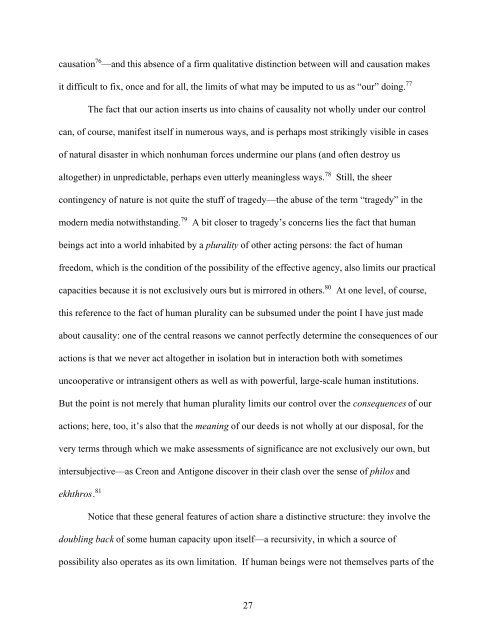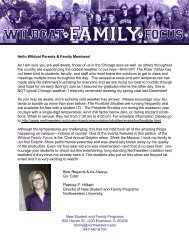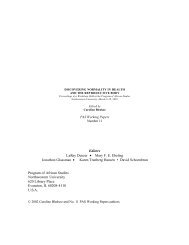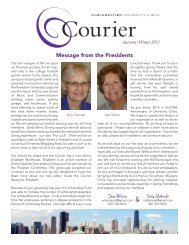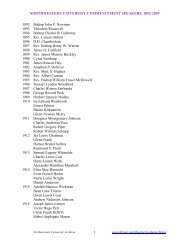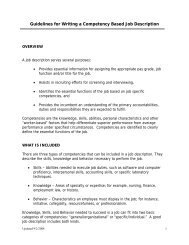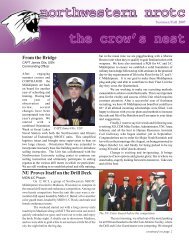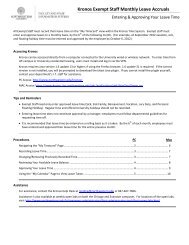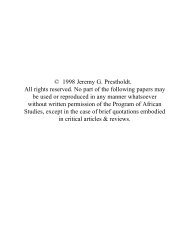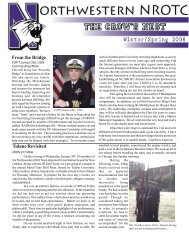TRAGIC RECOGNITION: ACTION AND IDENTITY IN ANTIGONE ...
TRAGIC RECOGNITION: ACTION AND IDENTITY IN ANTIGONE ...
TRAGIC RECOGNITION: ACTION AND IDENTITY IN ANTIGONE ...
Create successful ePaper yourself
Turn your PDF publications into a flip-book with our unique Google optimized e-Paper software.
causation 76 —and this absence of a firm qualitative distinction between will and causation makes<br />
it difficult to fix, once and for all, the limits of what may be imputed to us as “our” doing. 77<br />
The fact that our action inserts us into chains of causality not wholly under our control<br />
can, of course, manifest itself in numerous ways, and is perhaps most strikingly visible in cases<br />
of natural disaster in which nonhuman forces undermine our plans (and often destroy us<br />
altogether) in unpredictable, perhaps even utterly meaningless ways. 78 Still, the sheer<br />
contingency of nature is not quite the stuff of tragedy—the abuse of the term “tragedy” in the<br />
modern media notwithstanding. 79 A bit closer to tragedy’s concerns lies the fact that human<br />
beings act into a world inhabited by a plurality of other acting persons: the fact of human<br />
freedom, which is the condition of the possibility of the effective agency, also limits our practical<br />
capacities because it is not exclusively ours but is mirrored in others. 80 At one level, of course,<br />
this reference to the fact of human plurality can be subsumed under the point I have just made<br />
about causality: one of the central reasons we cannot perfectly determine the consequences of our<br />
actions is that we never act altogether in isolation but in interaction both with sometimes<br />
uncooperative or intransigent others as well as with powerful, large-scale human institutions.<br />
But the point is not merely that human plurality limits our control over the consequences of our<br />
actions; here, too, it’s also that the meaning of our deeds is not wholly at our disposal, for the<br />
very terms through which we make assessments of significance are not exclusively our own, but<br />
intersubjective—as Creon and Antigone discover in their clash over the sense of philos and<br />
ekhthros. 81<br />
Notice that these general features of action share a distinctive structure: they involve the<br />
doubling back of some human capacity upon itself—a recursivity, in which a source of<br />
possibility also operates as its own limitation. If human beings were not themselves parts of the<br />
27


